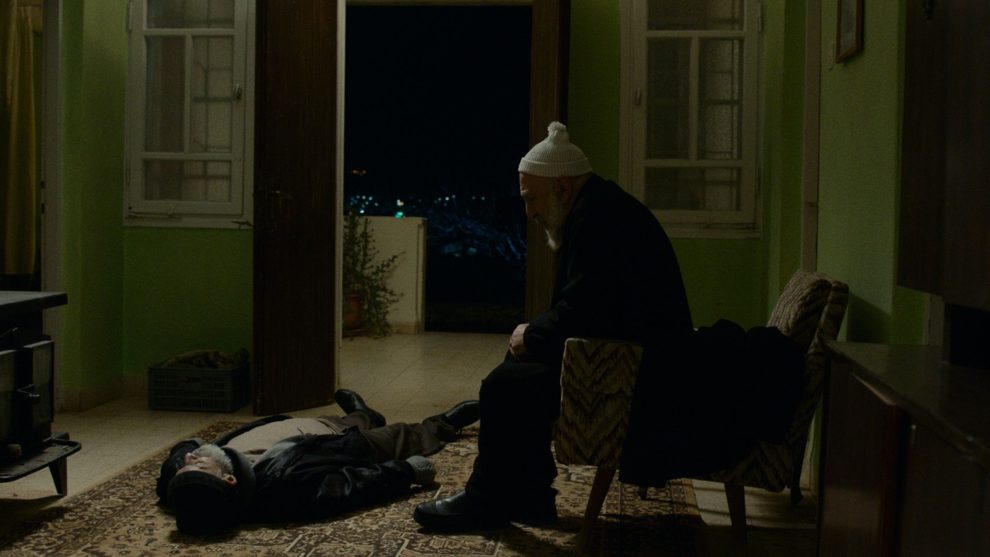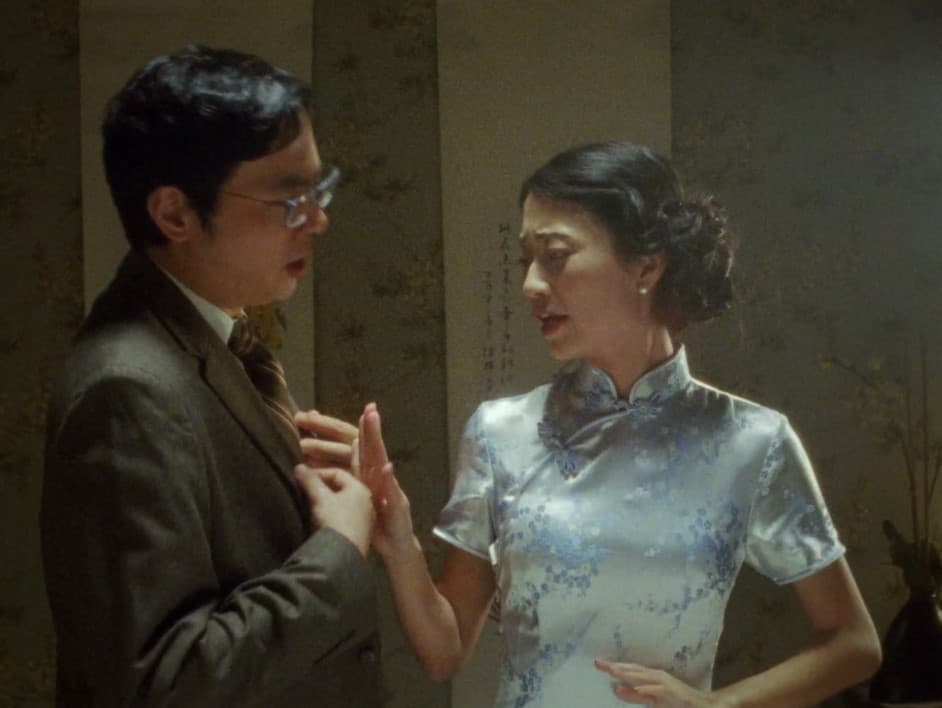Feature debut of Ehab Tarabieh, “The Taste of Apples is Red” features a very interesting main topic, as it focuses on the events that transpire among a small, intensely religious community whose people live in the Golan Heights, and believe in reincarnation, in a way that suggests that the number of their members always remains the same.
“The Taste of Apples is Red“ is screening at Thessaloniki International Film Festival

After an initial scene involving a mother and his son who seems to be the reincarnation of a soldier, we are introduced to the main protagonist, Kamel, a respected religious leader among the aforementioned community, who tries to keep things in balance in the wake of fierce battles of the Syrian Civil War. His decision about the mother and the child weighs heavily upon him, but the true tension comes when his brother, Mustafa, reappears on his doorstep, after missing for almost 50 years. Kamel wants nothing to do with him, but asks his daughter, Salma, the local doctor, to take care of him, after placing him in a hideout in the village. The old man is on the brink of death just as a baby has been born in the village, with the first sign of the aforementioned balance presented in the most shocking fashion. Soon, a number of even more shocking secrets are revealed, adding much to the angst Kamel feels, while Salma definitely does not remain unscathed. Kamel has to choose between family and religion, while the presence of Daud, the local “rich man” adds even more pressure.
Ehab Tarabieh directs a simple, economic movie of 84 minutes, which uses symbolism and archetypes in order to make its comments, while shedding a very thorough light to the lives of people within the aforementioned society. In that fashion, Kamel represents the people in the area who frequently find themselves having to choose between family and the strict religious rules that dictate life within the particular community. Mustafa represents the refugees the war created, while Salma's husband, who eventually also reappears, shows the consequences of war even on the people that survive it. Salma herself showcases the place of women, as, despite her intelligence and her role as a doctor, essentially finds herself a “follower” of the decision of men.
The event involving Mustada, Daud and Kamel also moves towards this direction, while also showing the occasional cruelty of the laws in the area. Lastly, Daud represents all the opportunists that got rich through the war, in a rather despicable figure that functions as the true villain of the story, with Suheil Haddad giving a great performance in the role. On the other hand, there is nothing simple about the goat event, the most shocking scene in the movie, which seems like a metaphor regarding the consequences of war in the Golan Heights.
Makram J. Khoury is excellent as Sheikh Kamel, highlighting his inner struggle deriving from the pressure he feels from all sides, in a laconic, but also rather palpable fashion that anchors the movie in the best way. The same applies, more or less, to Rula Blal as Salma, whose silences are as loud as possible throughout the movie.
Yaniv Linton's cinematography captures the particular setting with realism, with him using close and mid-shots to highlight the angst the protagonist feels, while a number of long shots showcase both the war and the rural area the story takes place in. Ori Derdikman's editing results in a fitting mid-tempo, with the lack of any unnecessary scenes emerging as a true triumph for both editor and director.
“The Taste of Apples is Red” is not a great film, but it is easy to watch, interesting, and benefits the most from the tight editing and the acting, in a rather hopeful debut that would find it very difficult to say anything negative about.
















